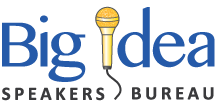Dr. Taryn Marie Stejskal
Dr. Taryn Marie is the #1 international expert on resilience, mental health, and wellbeing in leadership after conducting original research with hundreds of people over the course of two decades, giving rise to the resilience roadmap, The 5 Practices of Highly Resilient People, now a #1 WSJ bestselling book.
- Author of the book The Five Practices of Highly Resilient People – Why some flourish When Others Fold. (A Wall Street Journal #1 Best Seller in 2023!)
- Lead, Nike’s Global Executive Leadership Development Strategy
- Former Head, Cigna’s Leadership Development & Executive Programs
- Doctorate degree, University of Maryland, College Park
- Neuropsychology Fellow with the National Institute of Disability and Rehabilitation Research (NIDRR), Virginia Commonwealth University Medical Center
Dr. Taryn Stejskal is one of the leading authorities on Resilience Leadership. Nike named her the head of their global leadership training and her work is resonating throughout the Fortune 500. As she describes it, “We are a world in which our human experience is defined by facing challenge, change, and complexity on an order of magnitude to which prior generations have not been exposed. The concept of resilience is built on the very ideology that we have the capacity to face hard things: trauma, loss, misfortune, and the like, and come out on the other side; not diminished, but instead, enhanced.”
Video
BIOGRAPHY
As the #1 international expert on resilience and mental wellbeing, Dr. Taryn Marie has inspired audiences ranging from big stages of thousands to intimate gatherings of executives, sharing how we can all effectively face the inevitable moments of challenge, change, and complexity.
LA Progressive magazine calls her “the go-to person” and “a secret weapon” for organizations and teams who want to find their edge and rise above the competition. She has received standing ovations from audiences on topics related to change, leadership, confidence, compassion & empathy, innovation, wellbeing, and, of course, resilience. Audience members say her keynotes are:
“Uplifting. Thought provoking. Unforgettable. Your life and view of the world will not be the same after hearing Dr. Taryn Marie speak!”
She is a #1 Wall Street Journal (WSJ) Bestselling Author of the book, The Five Practices of Highly Resilient People: Why some flourish when others fold, and the Founder and Chief Resilience Officer (CRO) of the Resilience Leadership Institute (RLI). By conducting two decades of original research on resilience, Dr. Taryn Marie developed the empirically based framework, The Five Practices of Highly Resilient People and believes that resilience is the key to individual, teams, and organizational growth and acceleration across the globe. Her mission is to positively impact the lives of 1 billion people through the practices of resilience.
Prior to founding RLI, she served as the Head of Executive Leadership Development & Talent Strategy
at Nike, as well as Head of Global Leadership Development at Cigna.
Global Gurus has recognized Dr. Taryn Marie as a Top 30 Thinker in Leadership, she is a Marshall Goldsmith Top 100 Global Executive Coach (MG100), and she was a finalist for the Tony Hsieh Award, named for the former CEO of Zappos, awarded to those who are leading human capital innovation. Her work has been featured by Fox and NBC News, Bloomberg Business, Thrive Global, and Forbes. Her TEDx talk entitled “How Resilience Breaks Us Out of Our Vulnerability Cage” has been viewed over 1 million times!
Dr. Taryn Marie earned her bachelor’s degree from the University of Michigan, along with master’s and doctoral degrees from the University of Maryland, College Park, and completed pre- and postdoctoral fellowships in neuropsychology at Virginia Commonwealth University Medical Center. She is the host of the top 1% acclaimed podcast Flourish or Fold: Stories of Resilience, where well-known people tell their lesser well-known story of facing challenge to remind us that adversity is a necessary ingredient in life.
She is honored to be an ambassador for The African Community and Conservation Foundation (ACCF), along with serving as a sought-after trusted advisor and board member, to amplify resilience, engagement, and talent strategy. She also serves as Chief Product Officer (CPO) and Chief Happiness Officer (CHO) for Wicked Happy, a global aspirational apparel brand that promotes positivity and possibility through inspirational messages. Her two sons, Samson and Sawyer, are always teaching her about resilience! To learn more just click here.
SPEECH TOPICS
TESTIMONIALS:









